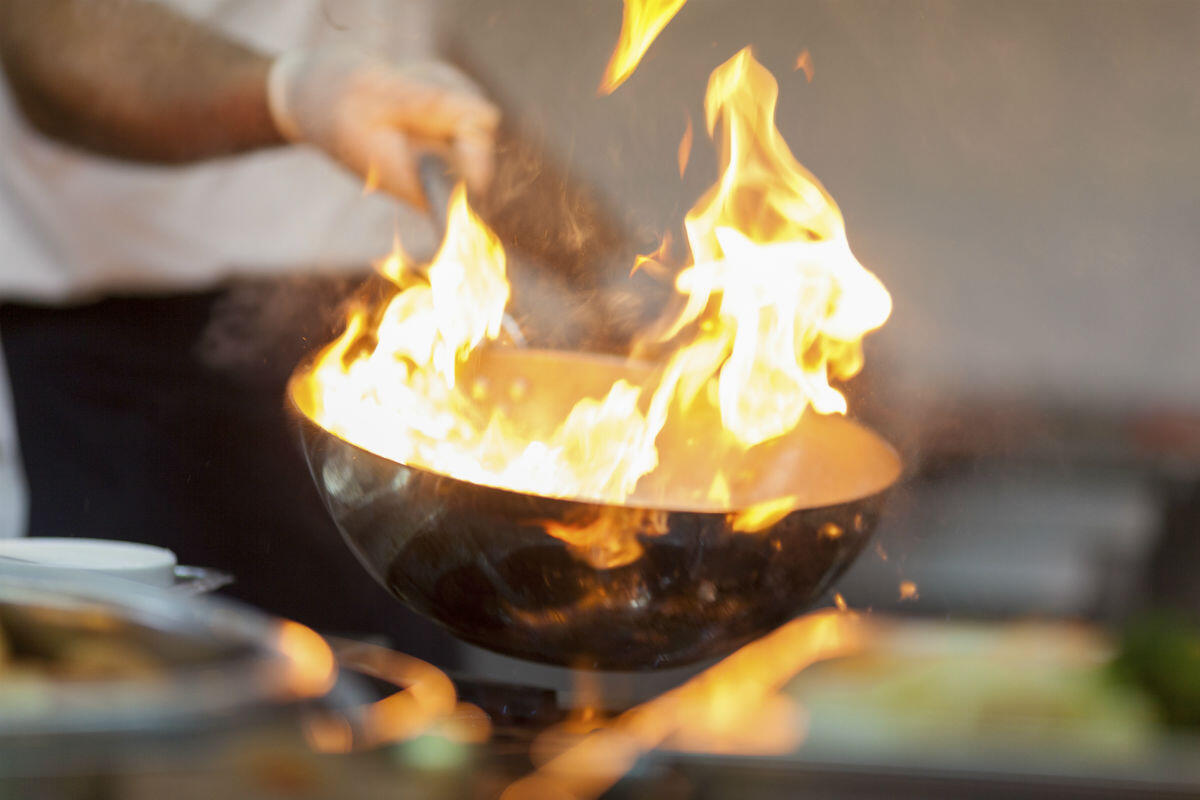A large number of people work in the food industry. Whether it's as a server or a chef, it's not a job we associate with any great levels of risk. However the rate of workplace injuries for food industry workers is actually pretty high!
According to the National Safety Council, if you work in the food industry, you have a sixty percent greater chance of being injured or suffering from a work related illness than in other occupations. It is important that you understand the risks.
The dangers of working in a restaurant
Working in a restaurant puts you at risk from a variety of injuries. Many workers in kitchens and restaurants suffer from cuts from sharp knives or from broken glass. Breaks happen in every restaurant and of course it is the restaurant staff who have to clean this up.
Burns are also very common. In a high pressure kitchen everything runs at a fast pace. It's easy enough to burn yourself cooking one meal at home, the risk is much greater in a hectic restaurant kitchen full of people with so many dishes on the go.
Then there's the risk of slipping on a slippery floor and hurting yourself. Additionally, lifting and being on your feet for extended periods of time can also cause strain on your joints. Back problems are very common in this industry.
Perhaps one of the more serious types of injuries is eye injuries. Cleaning fluids or hot fat can easily get into your eyes.
Ensuring restaurant worker safety
Some say that for every dollar spent on safety, a business is saving $5 on compensation claims due to worker injury and illness.
Some tips for restaurant owners to improve safety levels
- Ensure you have a fully stocked first aid cabinet and make sure that everyone knows where it is.
- Train your staff in basic first aid. A quick response can often prevent a injury from becoming more serious.
- If there are hazardous materials, make sure everything is properly labelled and your staff know how to handle it safely.
Keep your staff safe and you'll make sure they know how to do their own tasks in the safest possible way. For example, watch your staff to make sure they know how to use knives properly. A few extra safety measures really can make all the difference.
